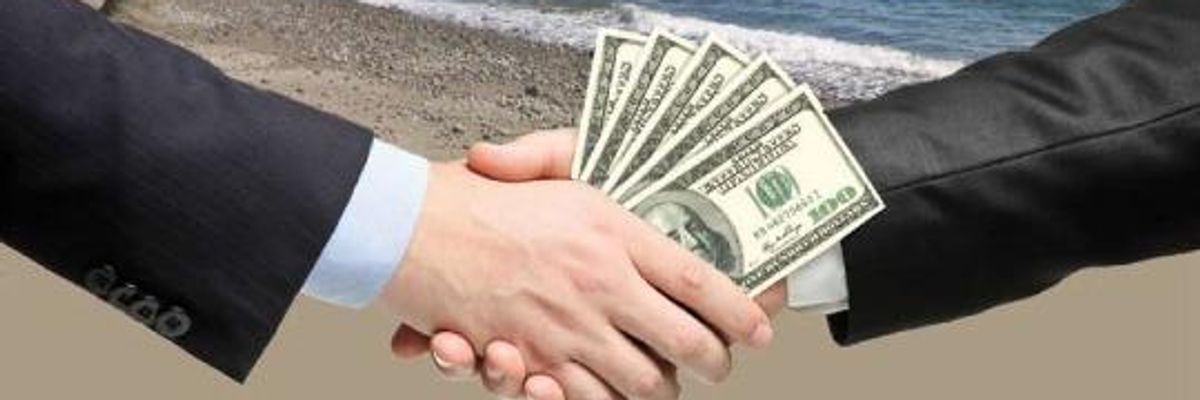The average U.S. taxpayer would have to pay an extra $1,259 in taxes per year to make up for revenue lost to offshore tax havens and corporate tax dodgers, according to a report released by U.S. PIRG to mark Tax Day on Tuesday.
That lost revenue must be made up somewhere, the group notes, and that burden falls on average tax payers through cuts to public services, higher taxes, and national debt.
According to the report, Picking up the Tab: Average Citizens and Small Businesses Pay the Price for Offshore Tax Havens, corporations and wealthy individuals evade an estimated $184 billion in state and federal income taxes per year, using "complicated accounting tricks to shift their profits to offshore tax havens."
$110 billion of that comes from corporations such as Pfizer, Microsoft, Citigroup and General Electric.
"Average taxpayers and small business owners foot the bill for offshore tax dodging," said the report's co-author Dan Smith. "Every dollar in taxes companies avoid by booking profits to shell companies in tax havens must be balanced by cuts to public programs, higher taxes for the rest of us, or more debt."
Likewise, the average small business would have to pay around $3,923 on Tax Day to make up for corporate tax havens.
"Offshore tax havens give large multinationals a competitive advantage over responsible small businesses which don't have subsidiaries in tax havens to reduce their tax bills," the group writes. "Small businesses get stuck footing the bill for corporate tax dodging."
And the practice has been continually upheld by U.S. lawmakers.
As U.S. PIRG points out, the Senate Finance Committee just recently voted for "two especially egregious offshore loopholes," costing the U.S. around $8 billion in lost revenue over the next two years.
One such Committee vote allowed General Electric to keep its 18 subsidiaries in tax haven accounts, amounting to $110 billion kept offshore. GE had hired 48 lobbyists to persuade the lawmakers.
GE filed a federal tax rate of negative 11.1 percent between 2008 and 2012 and actually received net tax payments from the government.
"Tax haven abusers benefit from America's markets, public infrastructure, educated workforce, security and rule of law--all supported in one way or another by tax dollars - but they avoid paying for these benefits," the group writes.
______________________

